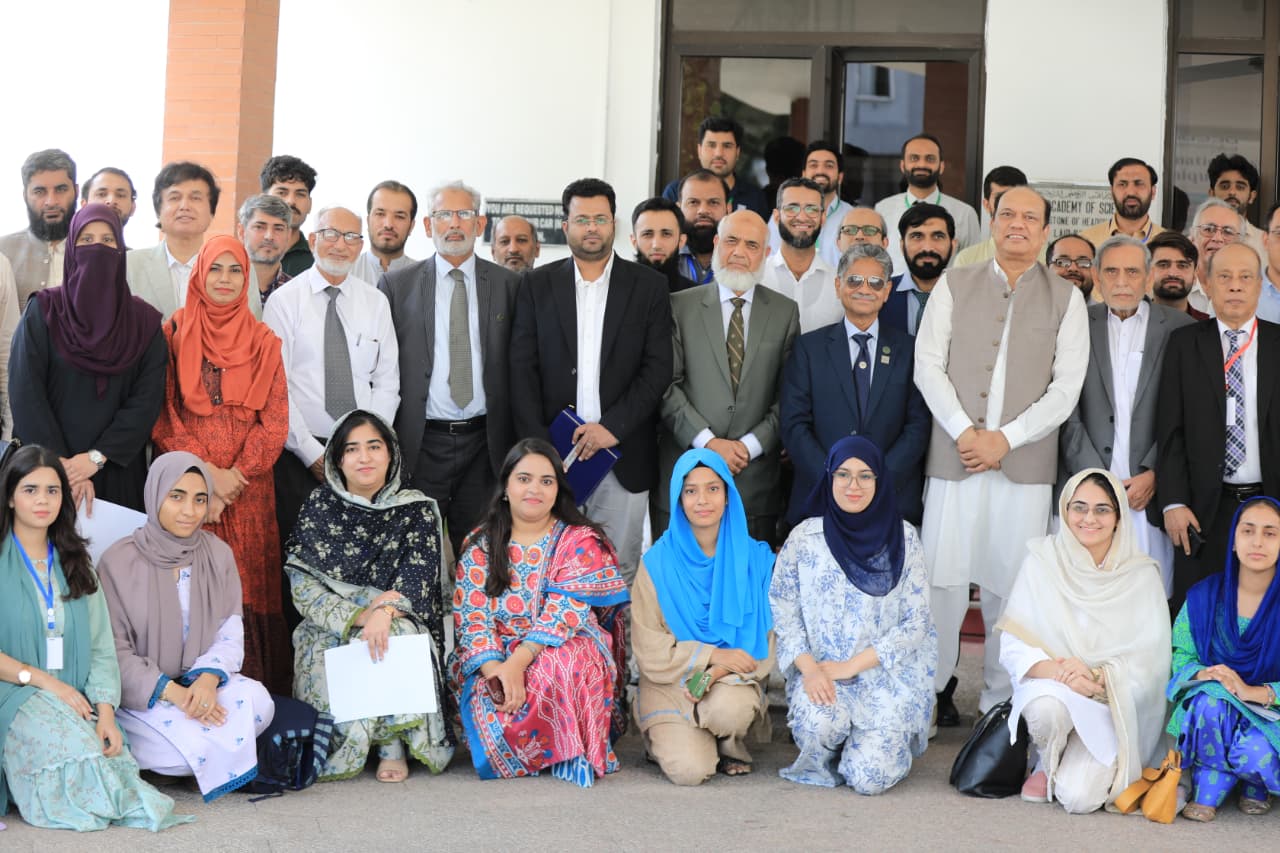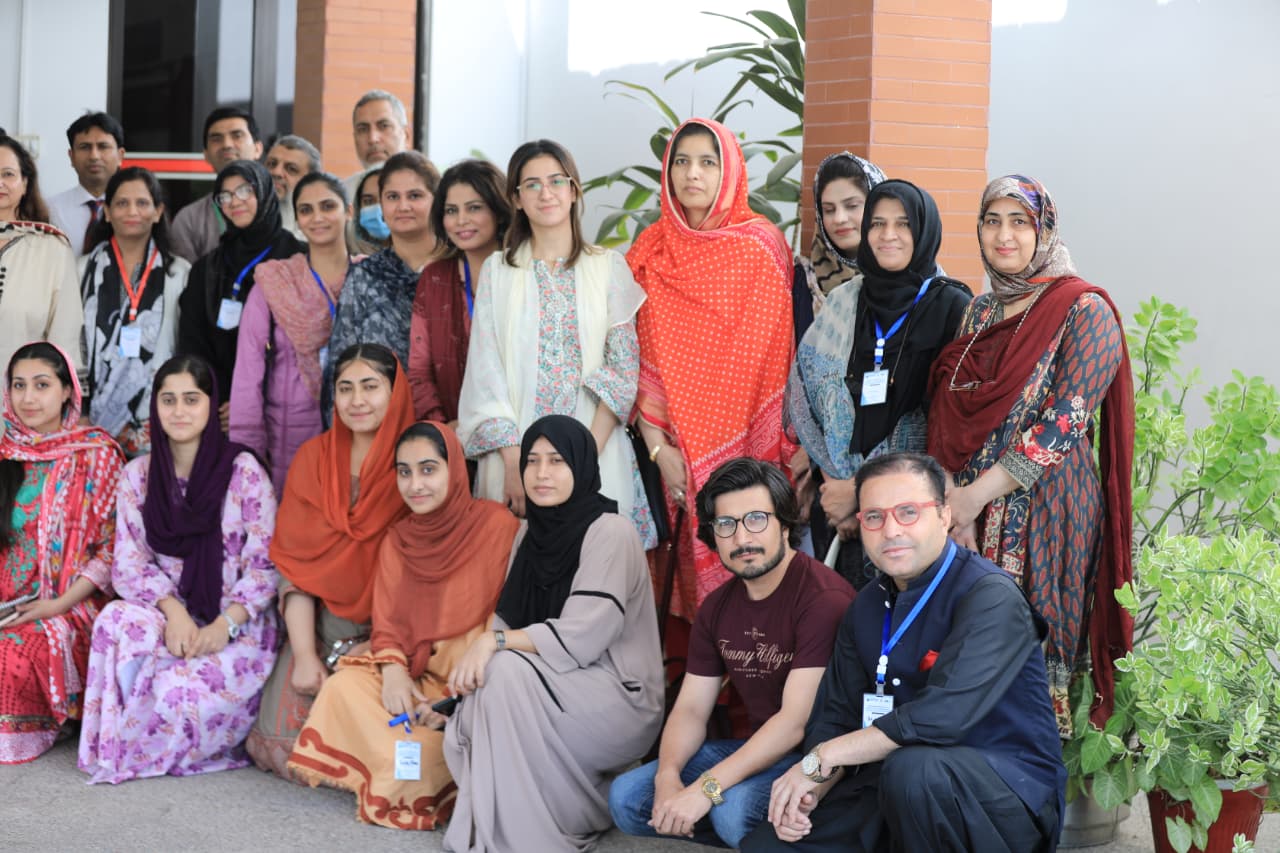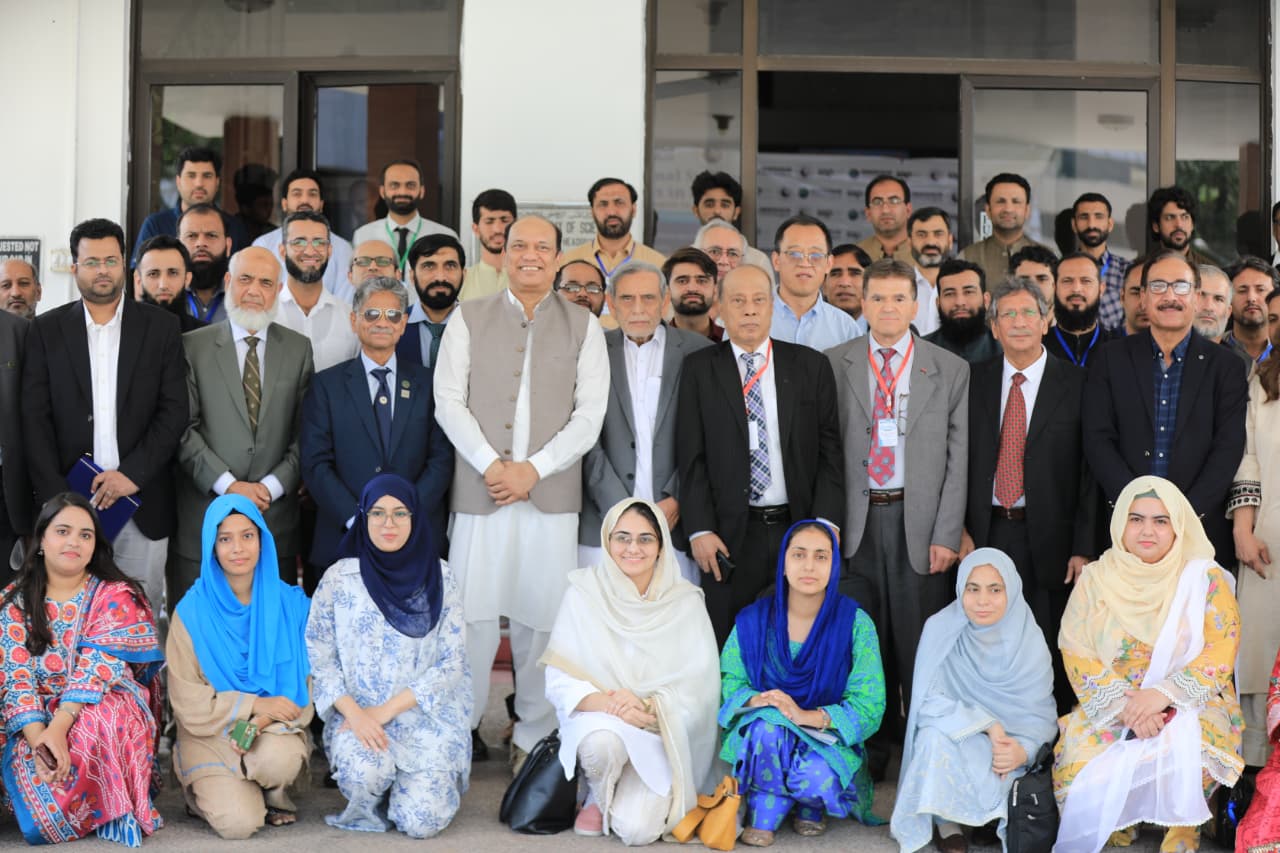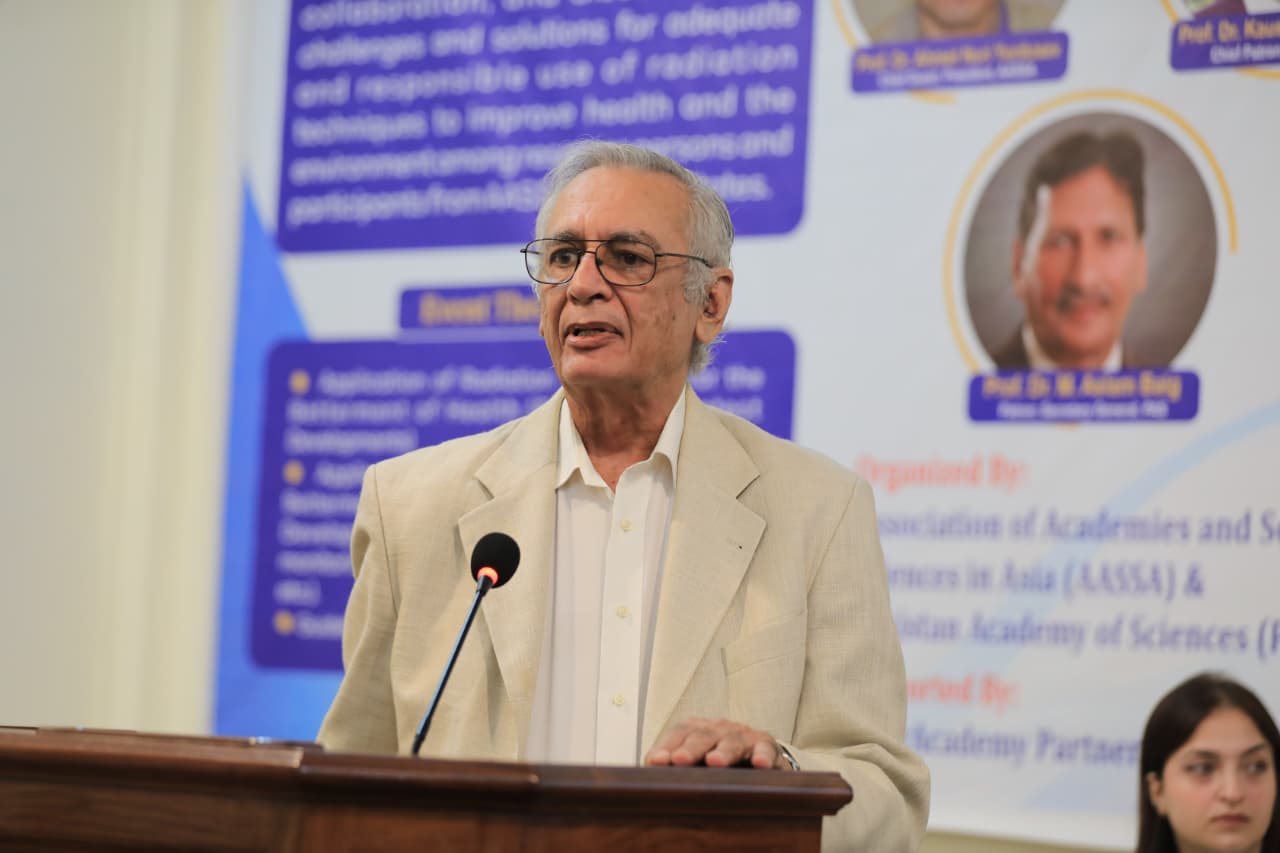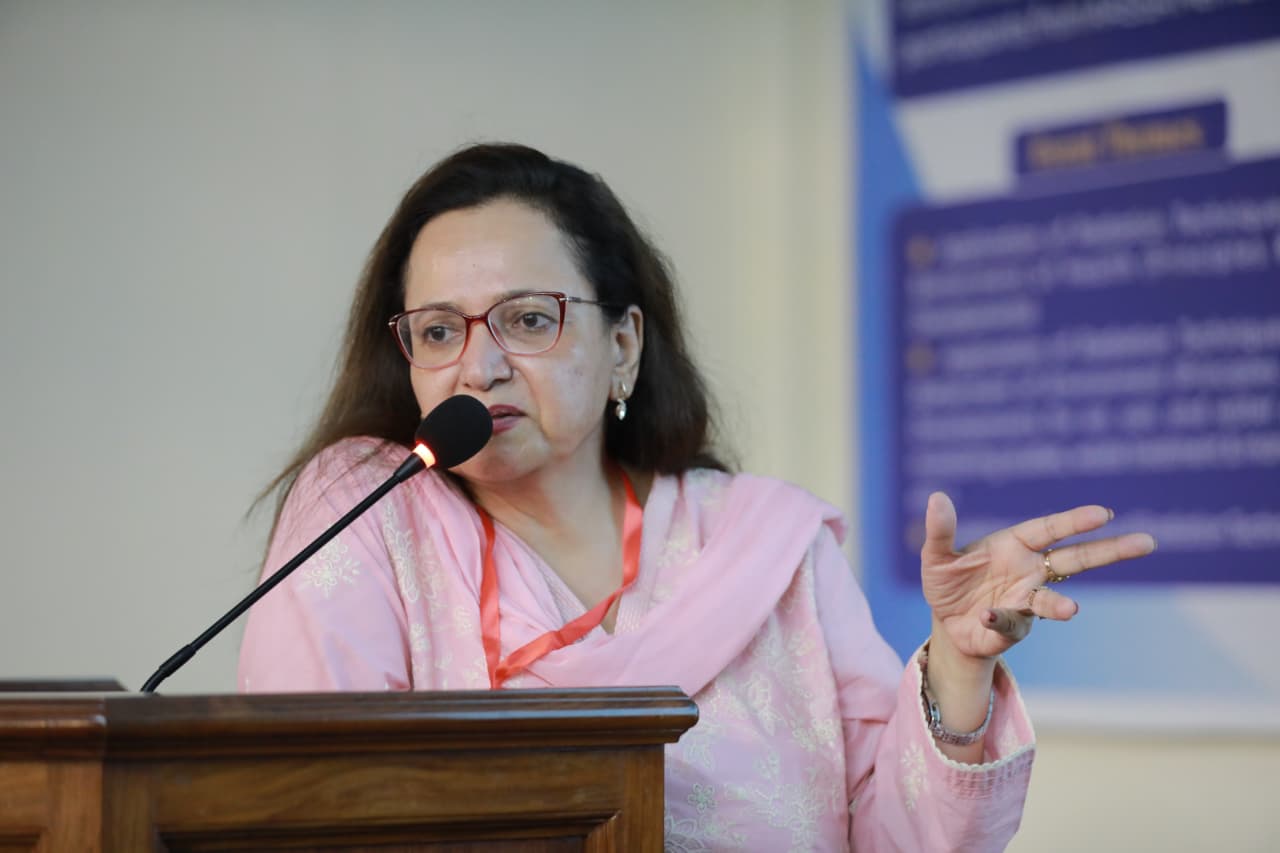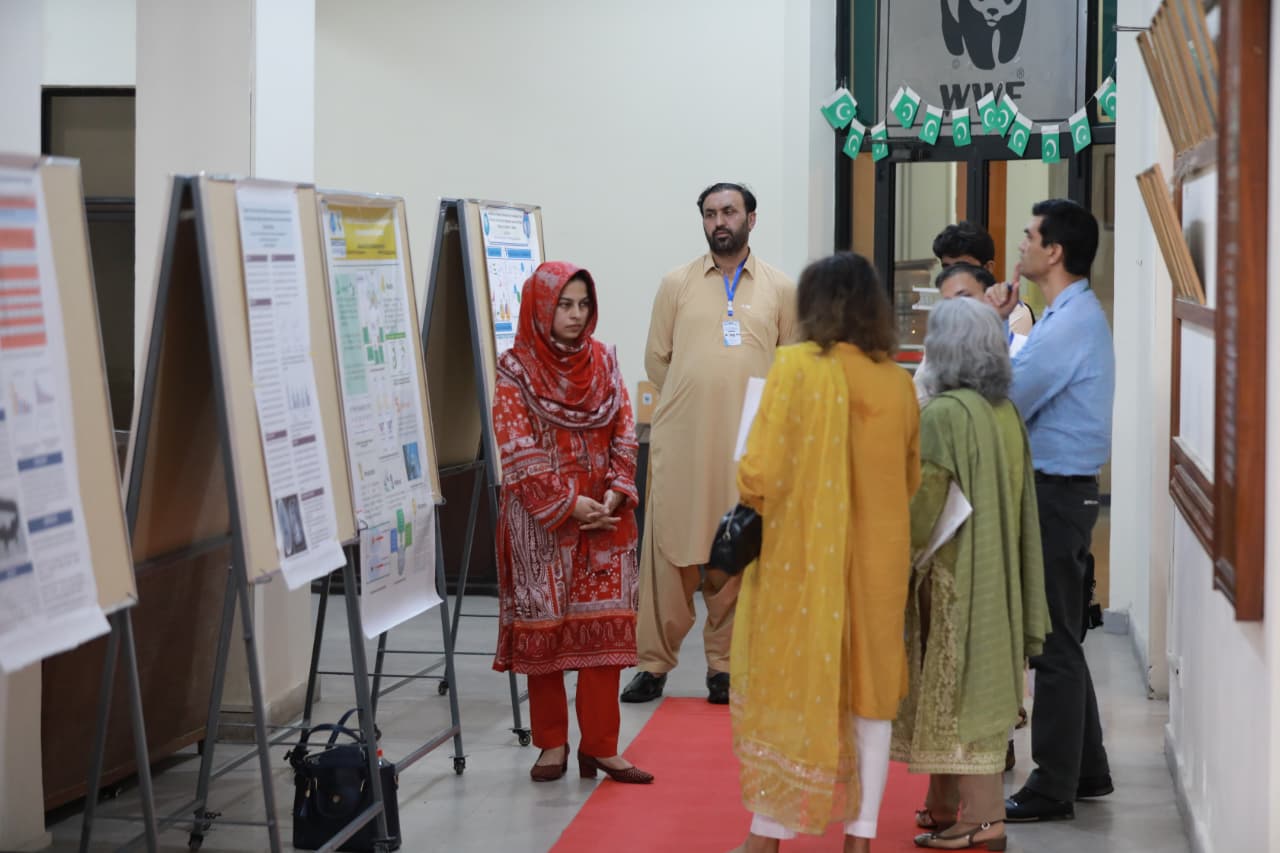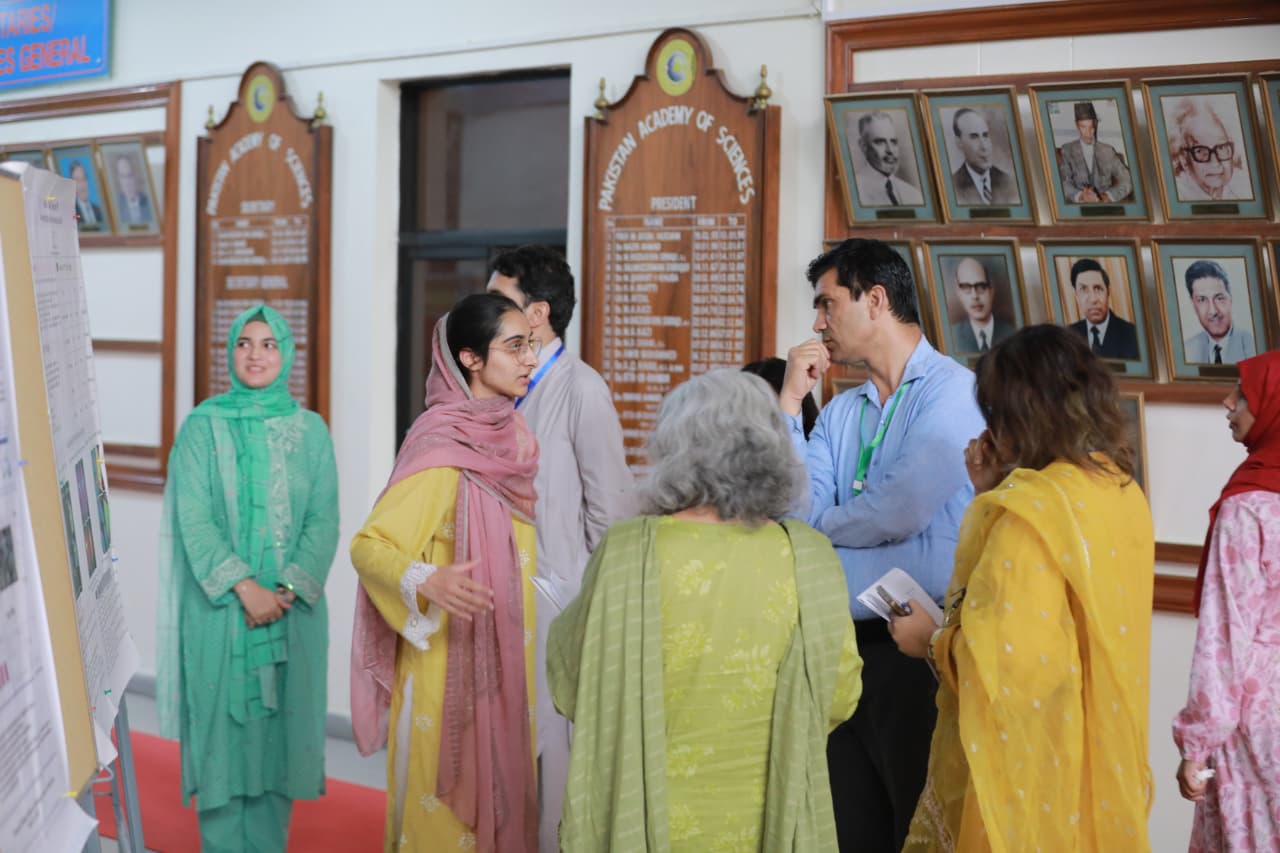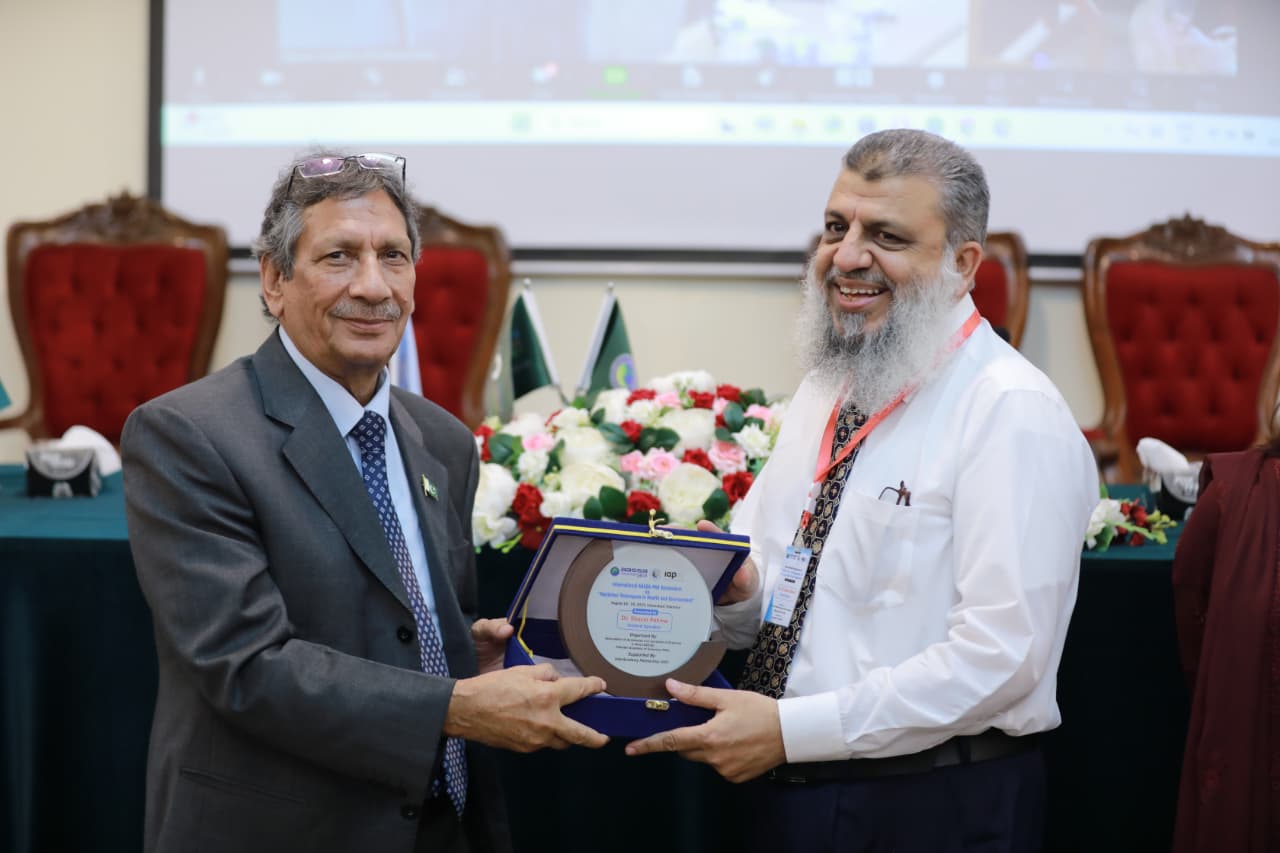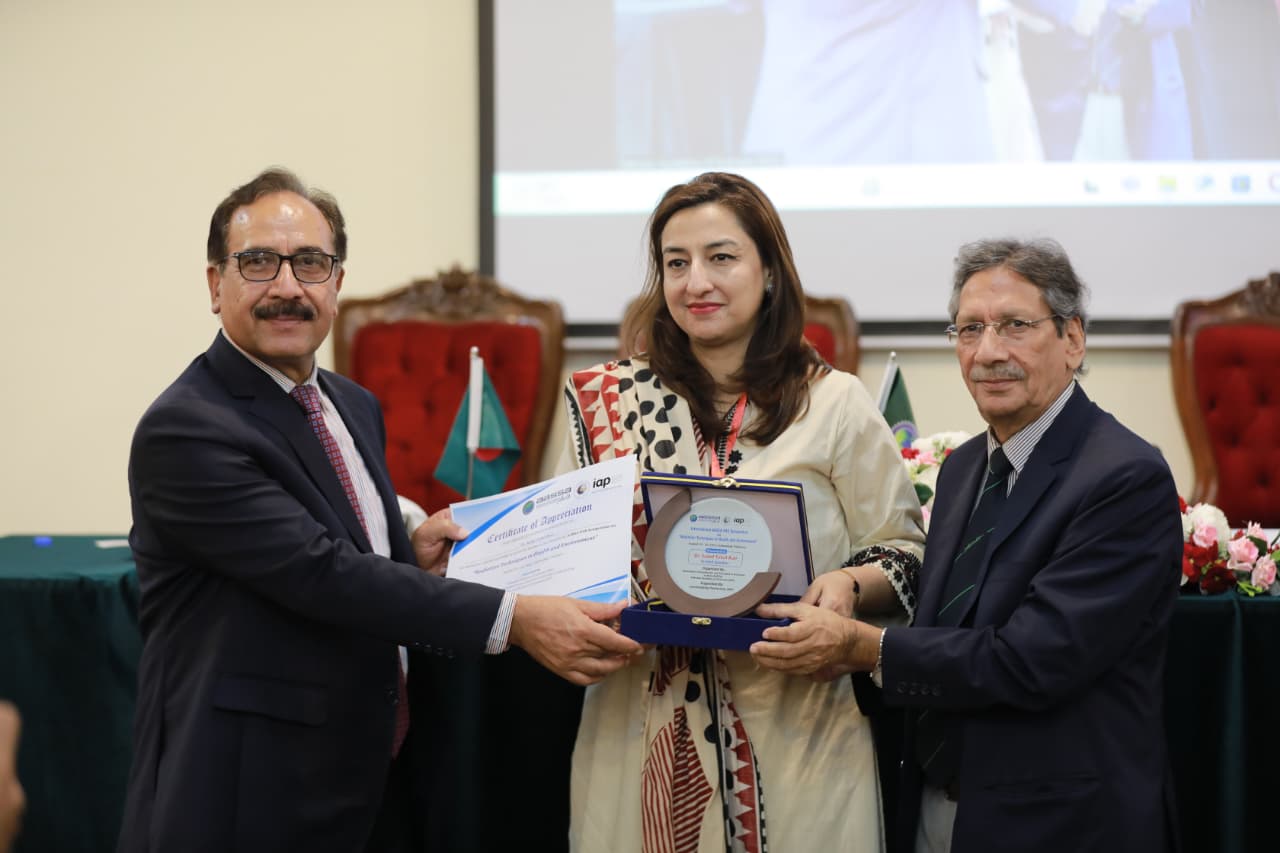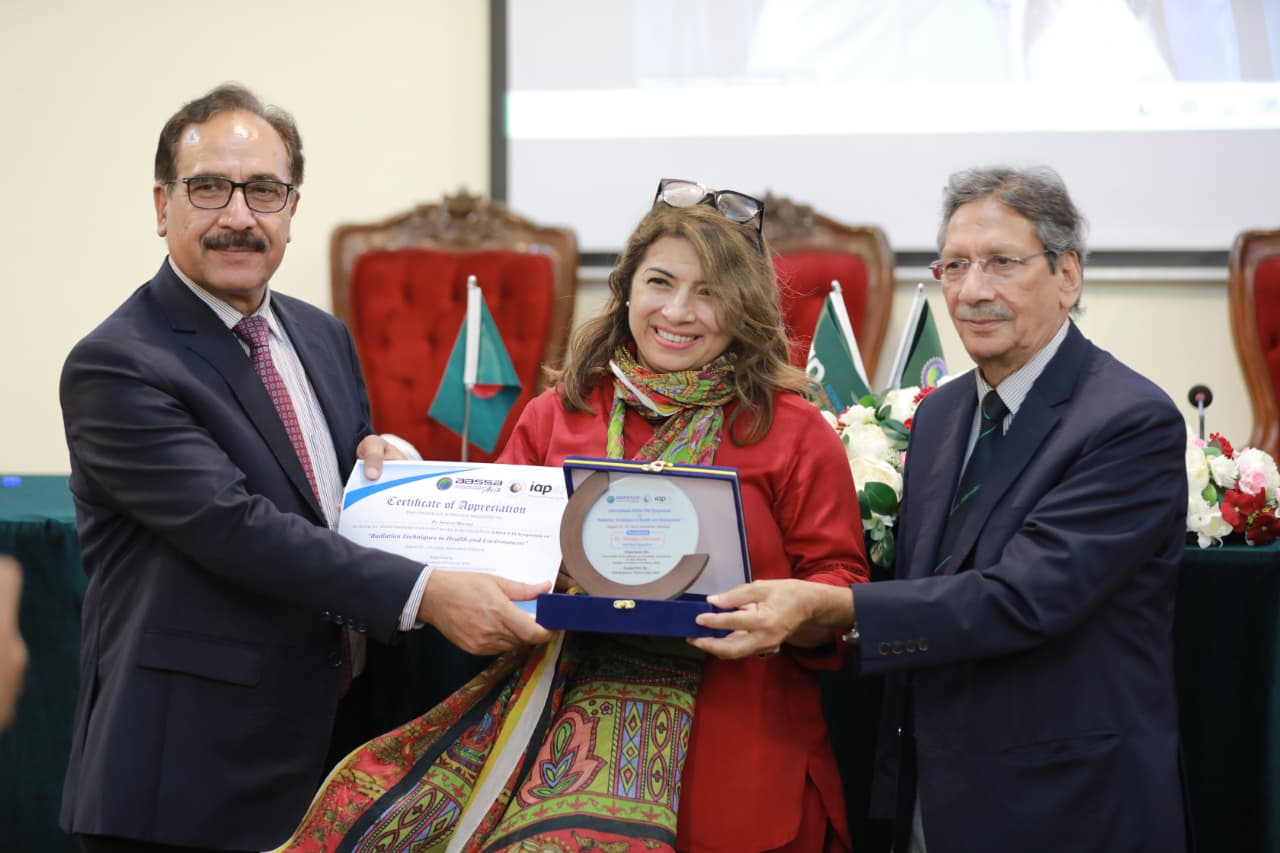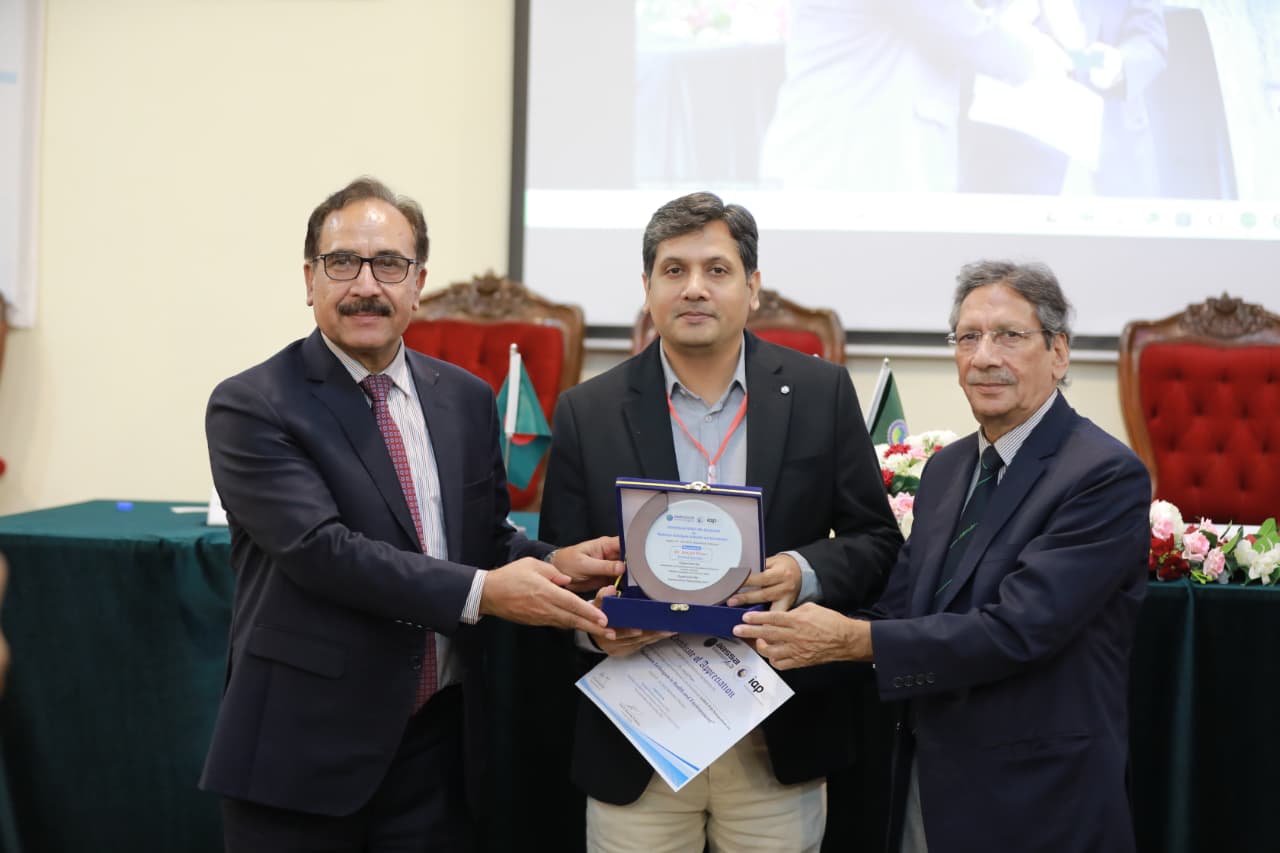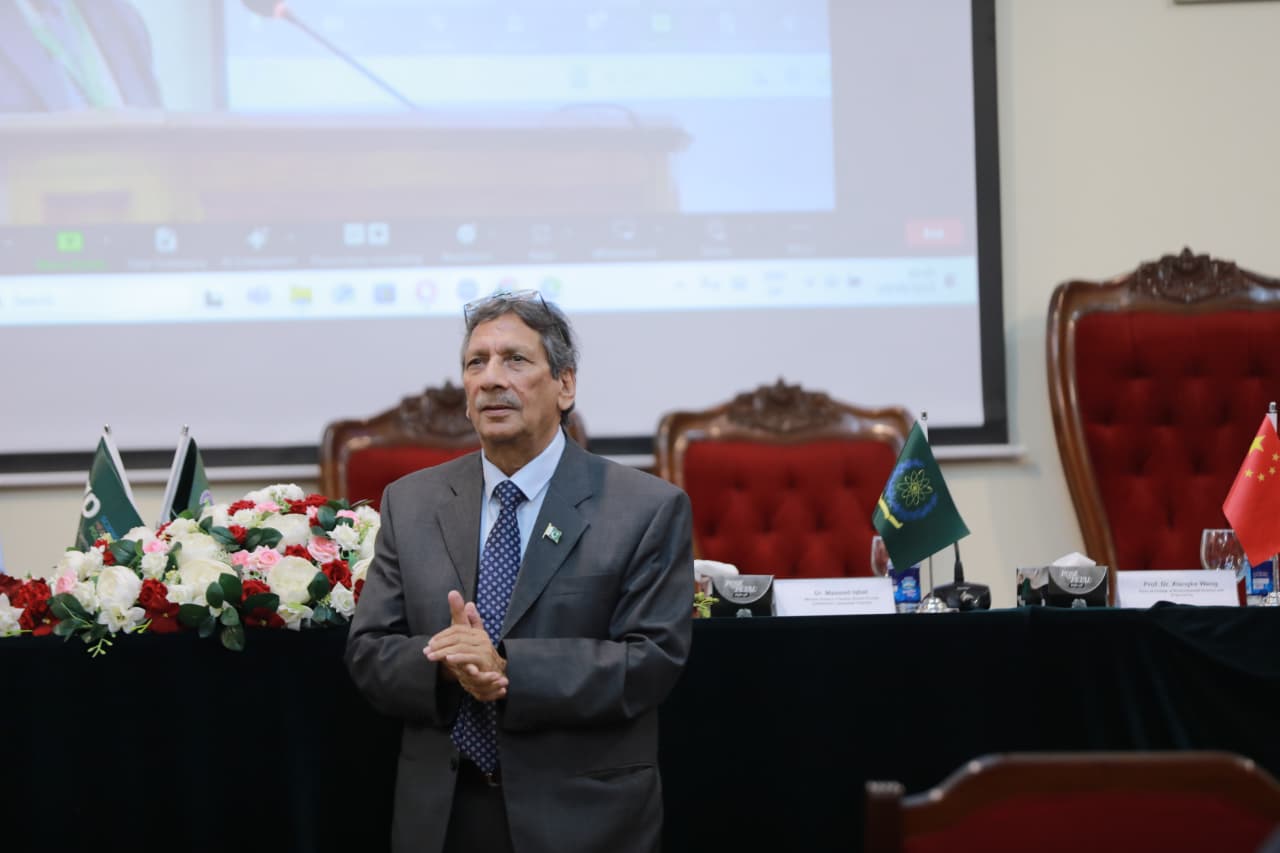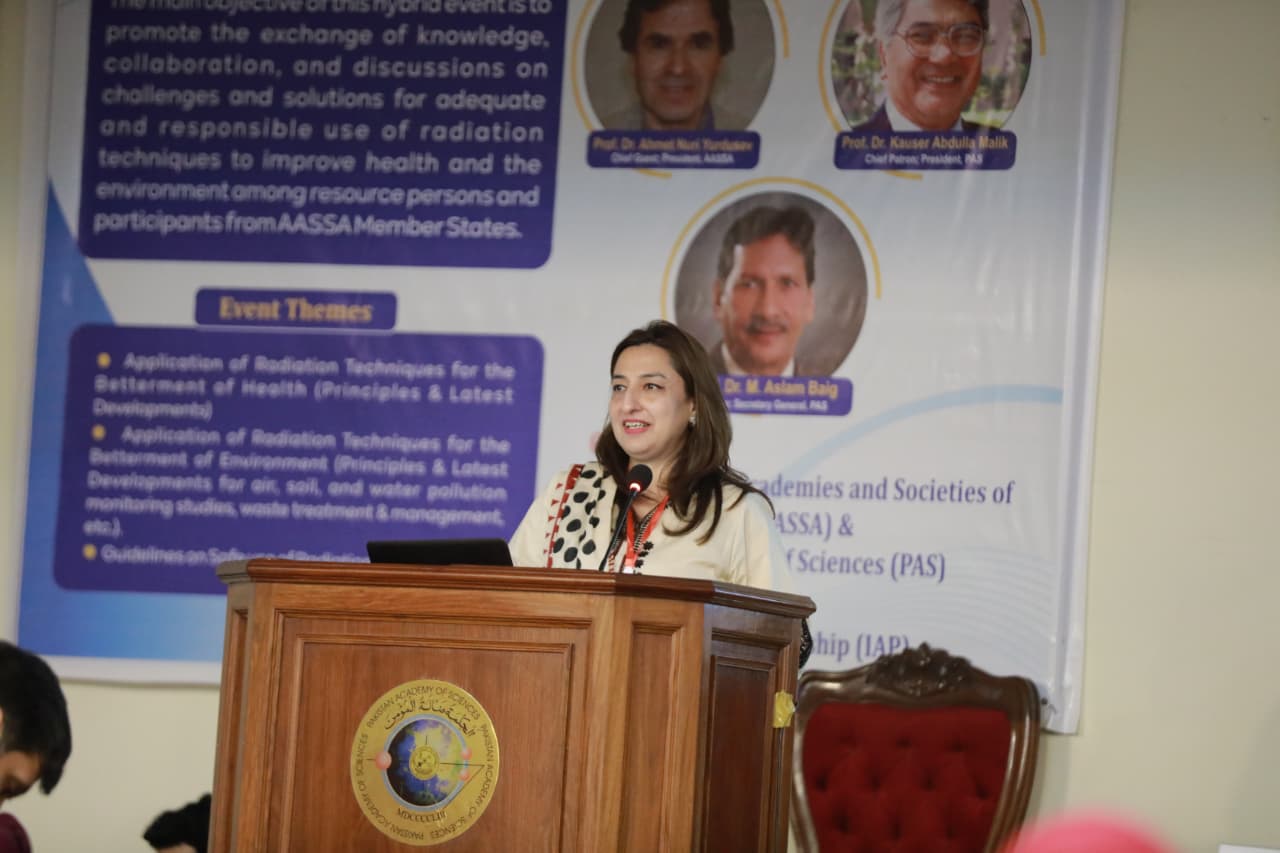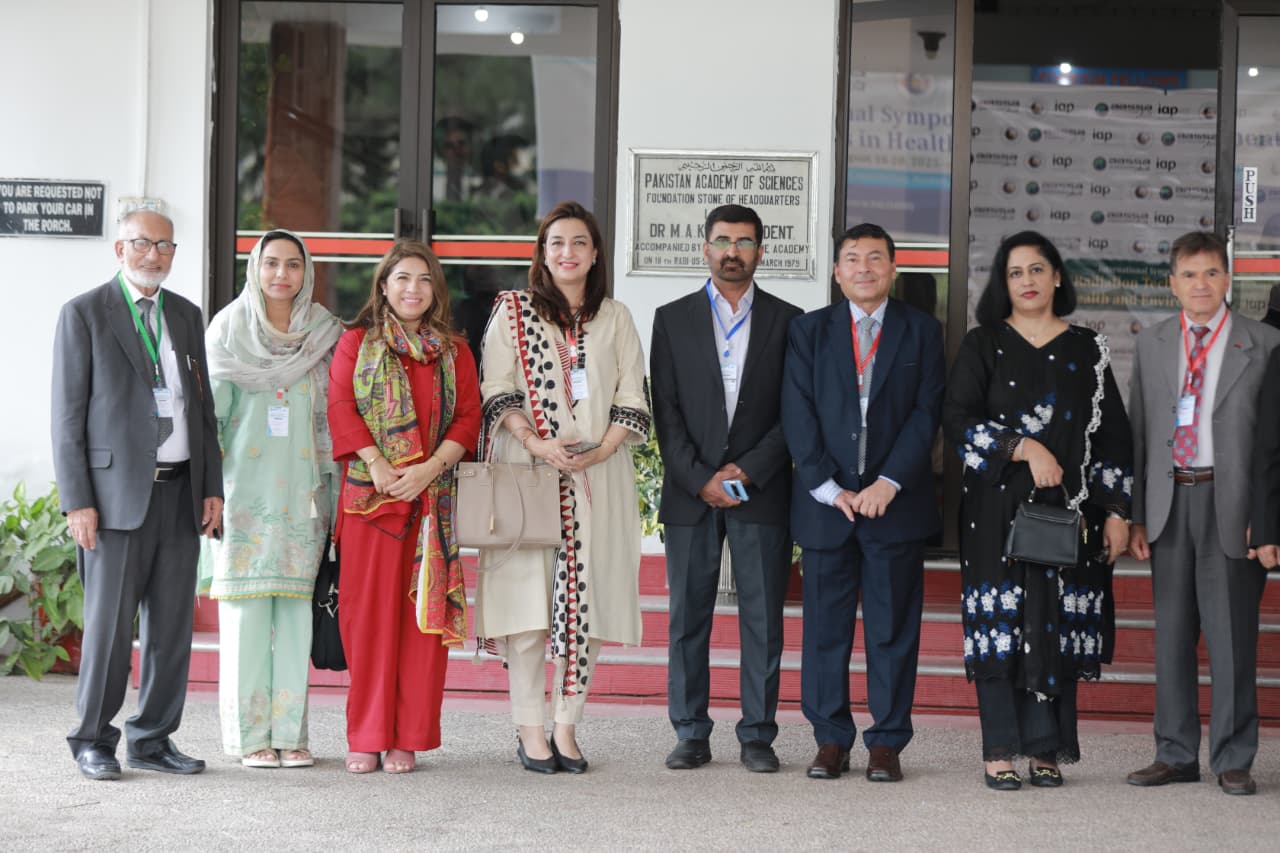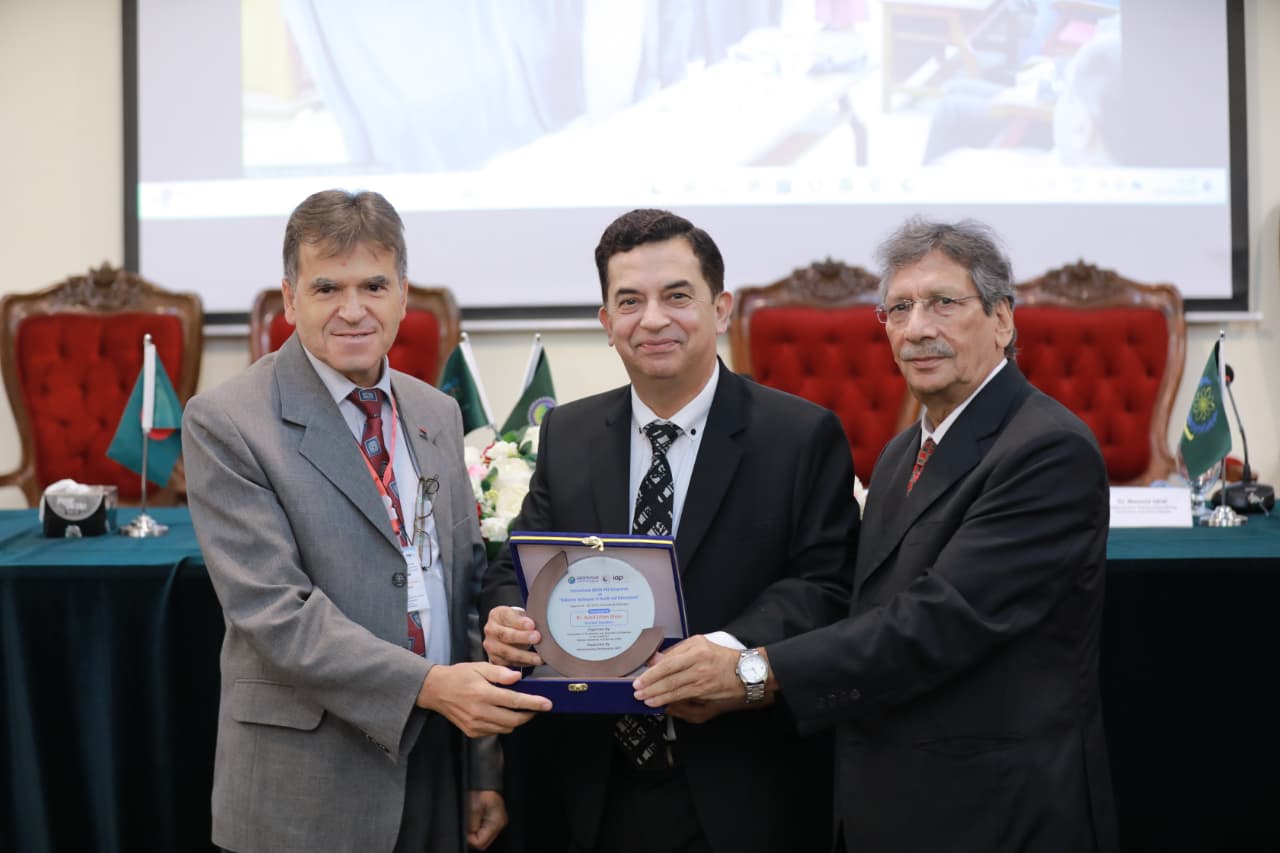AASSA-PAS Symposium on Radiation Techniques in Health and Environment (18-20 August, 2025)
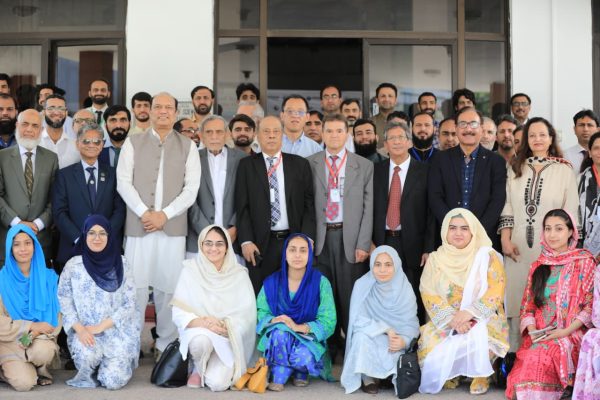
The “AASSA–PAS Symposium on Radiation Techniques in Health and Environment” was held at the Pakistan Academy of Sciences (PAS), Islamabad, from 18–20 August 2025, bringing together national and international experts and participants in a hybrid format. The Symposium was organized by PAS in collaboration with the Association of Academies and Societies of Sciences in Asia (AASSA) and the InterAcademy Partnership (iAP).
The event aimed to highlight the role of radiation technologies in advancing healthcare—such as diagnostics, nuclear medicine, and radiotherapy—as well as in addressing environmental challenges through monitoring and remediation while maintaining radiation safety standards. Its main objectives were to provide a platform for sharing cutting-edge research towards: (i) Application of radiation techniques in biomedical imaging, adaptive radiotherapy, radionuclide remediation, and safety standards & protocols w.r.t. dosimetry and patient safety, (ii) Synchrotron Radiation Based Characterization of Membranes and Viral Proteins as Drug and Vaccine Targets, (iii) Application of radioisotopes, and nuclear analytical techniques such as neutron activation technique for elemental analysis of materials, radioisotope based age/dating techniques for hydrogeological and archaeological and environmental implications, (iv) UV radiation technique for waste treatment and effective decontamination of potable water from organic pollutants and bacteria, and (v) Laser radiation techniques for photodynamic therapy for application w.r.t. oncological and non-oncological diseases.
The symposium drew a wide participation in a hybrid mode. Over 100 local scientists & professionals, as well as foreign invited speakers and Officials from Bangladesh, China and Korea attended the symposium in person, while around 141 national and international experts, scholars and invited speakers joined online, representing countries including Bangladesh, China, Korea, Malaysia, Pakistan and other AASSA Member States.
The Symposium was inaugurated on 18 August, 2025 by Prof. Dr. Ahmet Nuri Yurdusev (President AASSA). The inaugural session featured opening remarks by Prof. Dr. M. Aslam Baig (Secretary General PAS & President Science Council of Asia), welcome address by Prof. Dr. Kauser Abdulla Malik (President PAS), a keynote address by the Guest of Honour Dr. Masood Iqbal, Member Science, Pakistan Atomic Energy Commission (PAEC) and Inaugural Address by Prof. Dr. Ahmet Nuri Yurdusev (President AASSA). Speaking at the occasion, Prof. Dr. M. Aslam Baig (Secretary General PAS & President Science Council of Asia) thanked the Association of Academies and Societies of Sciences in Asia (AASSA) and the InterAcademy Partnership (iAP) for financially sponsoring the conduct of the Symposium at the Secretariat of the Academy in Islamabad. He also welcomed the participants present physically in the PAS Auditorium and/or attending On-line for their participation in the event. He also thanked the foreign invited speakers and the local invited speakers for accepting the invitation of the Academy to deliver lectures for the benefit of the participants from within Pakistan and the AASSA Member States. He briefly educated the audience about the role of the Academy for the benefit of its Fellows & Members; as well as for the benefit of academicians and postgraduate researchers in working at various universities and R&D institutions in Pakistan by providing a platform for scientific dialogue and collaborative research for innovation. The Guest of Honour, Dr. Masood Iqbal, Member Science, PAEC congratulated Pakistan Academy of Sciences for organizing the symposium to impart knowledge to medical professionals and environmentalists in Pakistan and within the region (AASSA Member States) on the safe use and impact of novel radiation and isotope techniques in the domain of health and environment. He also elaborated the role of PAEC in establishment of a network of over 20 nuclear medicine and oncology related hospitals across Pakistan and acknowledgement of the International Atomic Energy Agency (IAEA) to use these Cancer Hospitals for training purposes as a regional resource unit. He assured the participants of the utmost cooperation and support of PAEC for the success of this symposium and organization of similar symposiums in Pakistan in future for the national and region benefit.
Prof. Dr. Ahmet Nuri Yurdusev (President AASSA) appreciated the efforts of the Pakistan Academy of Sciences for organizing this important symposium and emphasized the need for developing regional collaboration in science and technology for the benefit of mankind. Following his address, Dr. Riffat M. Qureshi, Director Administration-PAS and Focal Person of the Symposium presented vote of thanks and especially thanked the efforts of the local organizing committee as well as Staff and Officials of the AASSA-Secretariat (Korea), especially Ms. Hanseul Kim, for provision of administrative support and arrangements of financial support by the AASSA.
From scientific, academic and technical view point, the Symposium comprised of an Inaugural Session, 5 Technical Sessions, and a Closing Session. Over the course of three days, speakers delivered plenary lectures and technical talks, while young researchers showcased their work in poster sessions. In total, 28 distinguished speakers delivered lectures on the emerging role of radiation techniques in medical imaging, oncology, environmental monitoring and waste treatment, dosimetry and patient safety. Four Plenary talks covering the two sub-themes of the Symposium were delivered in the 1st Technical Session by foreign invited speakers. These included 2 physical talks by invited experts from Bangladesh & China; and 2 on-line talks by invited experts representing the Malaysian Academy of Science and the Korean Academy of Sciences. Following this, 24 Invited Talks were delivered by local invited experts/speakers in the remaining four Technical Sessions.
The first Plenary Talk was delivered by Prof. Dr. A. K. Azad Chowdhury (President, Bangladesh Academy of Sciences & Prof. Emeritus, Department of Clinical Pharmacy and Pharmacology, University of Dhaka, Bangladesh; and Vice President-Science Council of Asia) who presented an excellent overview of the “Radiation Techniques in Health and Environment”. He emphasized that radiation science is central to modern medicine, enhancing oncology with precision, safety, and efficiency. He outlined imaging technologies such as X-ray, ultrasonography, CT, MRI, PET, and gamma cameras for high-resolution visualization, and therapeutic systems including LINAC, Gamma Knife, CyberKnife, SRS, and SBRT for targeted high-dose treatment with minimal damage. He also highlighted emerging techniques like FLASH radiotherapy, Carbon Ion Therapy, Cherenkov radiation, and Targeted Radionuclide Therapy. Beyond medicine, he mentioned about the applications in wastewater purification, hazardous waste sterilization, plastic degradation, and pollutant detection.
The 2nd Plenary Talk was presented by Prof. Dr. Xiangke Wang (North China Electric Power University, Beijing, P.R. China) on the aspects of “Toxicity of Radionuclides and their Selective Capture from Environmental Solutions”. He noted that with the rapid expansion of nuclear power plants and energy use, significant radionuclide releases into the environment can enter the food chain, posing both chemical and radiotoxic risks to human health. He outlined strategies for selective radionuclide capture from solutions, such as sorption, photocatalysis, electrocatalysis, and reduction-precipitation. He also highlighted the selective removal of radionuclides from complex solutions, an important step in treating spent nuclear fuels.
The 3rd Plenary Talk was delivered by Prof. Dr. Seung Hyup KIM (Seoul National University Hospital, Seoul, Korea) presented an online talk about “Postural Modification During Sleep Guided by Doppler Ultrasound and Contrast-Enhanced CT May Relieve Symptoms of Nutcracker Syndrome”. He educated participants about Nutcracker Syndrome (NCS), caused by compression of the left renal vein between the abdominal aorta and superior mesenteric artery, leading to symptoms such as hematuria, proteinuria, or flank pain. He stressed the importance of early detection of NCS and remarked that Doppler and contrast-enhanced CT are key diagnostic tools, with Doppler revealing posture-related changes.
The 4th Plenary Talk was delivered by Dr. Ng Kwan Hoong (Emeritus Professor, Department of Biomedical Imaging, Universiti, Malaya, Kuala Lumpur, Malaysia) on the topic of “Emerging Biomedical Imaging Technologies in Improving Diagnostic Accuracy”. In his talk, Dr. Ng Kwan highlighted the emerging tools including digital breast tomosynthesis, breast CT, photon-counting CT, PET/CT, theranostics and molecular imaging, shear wave elastography, and MRI, and emphasized radionics for linking imaging biomarkers with genomic, proteomic, and clinical data. He concluded that the convergence of AI, advanced physics, novel tracers, and portable devices is making imaging more personalized, real time, safe, and preventive.
It is worth mentioning that the local speakers in the domain of radiation techniques in health represented top of the line Nuclear Medicine and Oncology Centers of the Pakistan Atomic Energy Commission (PAEC) and gave participants an overview of the state-of-the-art radiation facilities in the respective medical institutions as well as practical insights into Pakistan’s capabilities in the field of radiation techniques in health. The invited speakers in the domain of radiation safety and patient safety belonged to Pakistan Nuclear Regulatory Authority (PNRA) and Health Services Academy (HAS)-Islamabad. On the other hand, local speakers in the domain of radiation techniques in environment represented top of the line nuclear institutions such as PINSTECH, NILOPE, Optics Laboratories of the Pakistan Atomic Energy Commission (PAEC), and Universities such as the National University of Science and Technology (NUST)-Islamabad.
Dr. Shazia Fatima, Director General Nuclear Medicine & Oncology, PAEC Headquarters, delivered a key note invited talk on “Nuclear Science Application in Sustainable Development,” focusing on the establishment of a network of over 19 PAEC Cancer Hospitals across Pakistan. These hospitals provide nuclear medicine diagnostics, radiotherapy, brachytherapy, and chemotherapy to hundreds of thousands annually, while also training physicians, physicists, technologists, and nurses through IAEA-supported programs. She highlighted the PAEC Cancer Registry as a vital tool for surveillance and evidence-based policymaking to strengthen cancer control. She also stressed sustainable infrastructure, safety culture, regulatory compliance, and international cooperation as the basis for expanding theranostics, digital health, and regional collaborations aligned with national and global goals.
Shields and Certificates were distributed after each technical session among the physically present speakers. who physically presented. On the second day of the event, nine posters representing application of radiation techniques in health and environment were showcased by young researchers. A 3-member team of experts from PAS, Quaid-i-Azam University (QAU)-Islamabad and National Academy of Young Scientists (NAYS)-Islamabad interviewed the poster presenters and vetted the Posters to decide about top two post presenters for award.
In the Closing Ceremony, Prof. Dr. Aslam Baig, Secretary General-PAS thanked the local and foreign speakers and participants for making this event a unique one by their fruitful participation. Dr. Kauser Abdulla Malik, President PAS also thanked the Speakers and Participants for attending the event with full zeal and enthusiasm, and also congratulated the two award winners of the Poster Competition. In his Concluding Address, Prof. Dr. Ahmet Nuri Yurdusev (President AASSA) remarked that the AASSA-PAS Symposium-Islamabad is among the best symposiums he has attended over the years in terms of quality of Plenary Talks, Invited Talks, Poster Presentation and full time attendance by over 150 physical and on-line participants which shows the importance of the topic of the symposium and the quality of organization of the symposium. Speaking at the occasion, he assured his continuous support to Pakistan Academy of Sciences for organization of similar scientific events in Pakistan at the platform of AASSA. The concluding session also featured the announcement of best poster awards. Cash awards and Certificates were presented to the top two poster presenters. The session concluded with a vote of thanks by Dr. Javed Akhtar, Editor-in-Chief, PAS and Focal Person of the Symposium.
The AASSA-PAS Symposium-Islamabad has not only showcased Pakistan’s scientific contributions in the application of radiation techniques in health and environment but also strengthened the PAS-AASSA–iAP cooperation, paving the way for joint research initiatives and knowledge exchange. It is expected that the ASSA-PAS Symposium on radiation techniques in health and environment will foster collaborations among Asian academies, universities, and research institutions. By bridging expertise across borders, the event is expected to create long-term impact in promoting safe, innovative, and sustainable applications of radiation technologies for the benefit of both human health and environmental management in Asia and beyond.

